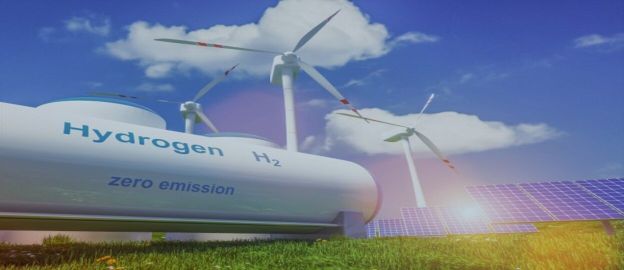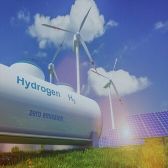Obligation to sell electricity on power exchange―no time for sudden moves

The Ministry of Climate and Environment have announced its plans to abolish the obligation to sell electricity on power exchange by generators, a so-called ‘obligo’. A public consultation on the proposed law is underway. The topic seems technical and niche. But the effects of the planned changes will be widespread: with the electricity market not very competitive, the abolition of the obligation will increase wholesale prices and have a negative impact on consumers―mainly industrial ones. This is a step backwards in terms of competition and transparency of the electricity market in Poland.
Read More
Obligation to sell electricity on power exchange―no time for sudden moves
The Ministry of Climate and Environment have announced its plans to abolish the obligation to sell electricity on power exchange by generators, a so-called ‘obligo’. A public consultation on the proposed law is underway. The topic seems technical and niche. But the effects of the planned changes will be widespread: with the electricity market not very competitive, the abolition of the obligation will increase wholesale prices and have a negative impact on consumers―mainly industrial ones. This is a step backwards in terms of competition and transparency of the electricity market in Poland.

Green hydrogen strategy still too gray

The government is about to conclude its public consultation of the draft Polish Hydrogen Strategy until 2030 with an Outlook until 2040. It gives hope that this time around Poland will join other European countries in the early stages of creating new technological solutions and supply chains. It is a chance for building national potential in a new industry and creating jobs. However, the hydrogen strategy is not yet reflected in other strategic documents defining the future of the Polish energy sector.
Read More
Green hydrogen strategy still too gray
The government is about to conclude its public consultation of the draft Polish Hydrogen Strategy until 2030 with an Outlook until 2040. It gives hope that this time around Poland will join other European countries in the early stages of creating new technological solutions and supply chains. It is a chance for building national potential in a new industry and creating jobs. However, the hydrogen strategy is not yet reflected in other strategic documents defining the future of the Polish energy sector.

Five energy projects that must happen in 2021

The future begins today, not tomorrow. The year 2020 was unusual in many ways, so many people will be relieved that it is now ending. But in terms of the energy transition, it was a watershed year. The European Union reached agreement on the European Green Deal. In Poland, the government and labour unions openly admitted that Poles need to talk about the end of the coal era. The energy sector in the country is at a crossroads and it is time for it to choose the right path for its further operation and development in 2021.
Read More
Five energy projects that must happen in 2021
The future begins today, not tomorrow. The year 2020 was unusual in many ways, so many people will be relieved that it is now ending. But in terms of the energy transition, it was a watershed year. The European Union reached agreement on the European Green Deal. In Poland, the government and labour unions openly admitted that Poles need to talk about the end of the coal era. The energy sector in the country is at a crossroads and it is time for it to choose the right path for its further operation and development in 2021.

55% ― only without panic

EU climate policy is accelerating again. The European Commission has just proposed raising the target for reducing greenhouse gas emissions until 2030 to 55%. Poland has always opposed ambitious goals, but now a breakthrough seems possible―the end of coal is inevitable, we must take care of energy security, after coronavirus we need new investments, and reducing CO2 emissions is associated with improving air quality, which the government defines as a strategic challenge. By taking these measures now, in heat, electricity and transport, emissions can be reduced by over 40%. The remaining cuts will come from the new policies on industry and agriculture and the sharing of efforts between Member States.
Read More
55% ― only without panic
EU climate policy is accelerating again. The European Commission has just proposed raising the target for reducing greenhouse gas emissions until 2030 to 55%. Poland has always opposed ambitious goals, but now a breakthrough seems possible―the end of coal is inevitable, we must take care of energy security, after coronavirus we need new investments, and reducing CO2 emissions is associated with improving air quality, which the government defines as a strategic challenge. By taking these measures now, in heat, electricity and transport, emissions can be reduced by over 40%. The remaining cuts will come from the new policies on industry and agriculture and the sharing of efforts between Member States.

Energy sector integration | Key to becoming climate-neutral by 2050

The future energy mix will be dominated by renewable energy sources (RES) with zero production costs, such as wind farms and photovoltaics. The abundance of cheap electricity will allow for the replacement of fossil fuels, both in heating and transport sectors. Effective integration of these sectors, within one energy system, will also help to solve the problem of weather-dependent RES production.
Energy sector integration | Key to becoming climate-neutral by 2050
The future energy mix will be dominated by renewable energy sources (RES) with zero production costs, such as wind farms and photovoltaics. The abundance of cheap electricity will allow for the replacement of fossil fuels, both in heating and transport sectors. Effective integration of these sectors, within one energy system, will also help to solve the problem of weather-dependent RES production.

Renewables in the Polish energy mix. Still not enough to meet the targets

The energy transformation has accelerated significantly. Thanks to the enormous cost reduction of solar PV and onshore wind, these technologies are increasingly being chosen by the private sector and households as an investment that allows for significant savings. In recent years, however, the development of renewable energy sources (RES) has depended on state policies and support schemes. They were to enable Poland to achieve the so-called RES target - renewables were to account for 15% of gross final energy consumption in 2020[1]. According to our estimates, the target is still far from being achieved - in 2019 the share of RES amounted to 11.5% only and everything indicates that this year too, the result of 15% is out of reach.
Read More
Renewables in the Polish energy mix. Still not enough to meet the targets
The energy transformation has accelerated significantly. Thanks to the enormous cost reduction of solar PV and onshore wind, these technologies are increasingly being chosen by the private sector and households as an investment that allows for significant savings. In recent years, however, the development of renewable energy sources (RES) has depended on state policies and support schemes. They were to enable Poland to achieve the so-called RES target - renewables were to account for 15% of gross final energy consumption in 2020[1]. According to our estimates, the target is still far from being achieved - in 2019 the share of RES amounted to 11.5% only and everything indicates that this year too, the result of 15% is out of reach.

The EU is ready to co-finance our energy transformation ― what does the Polish government have to say?

On 17 July the European Council will launch the final negotiations on the EU budget, unprecedented in scale and intended to pull the EU out of recession and give it a new boost.
Since December 2019 Poland has been part of the EU discussions, trying to distance itself from climate neutrality in 2050. Although all other Member States agreed to it.
Read More
The EU is ready to co-finance our energy transformation ― what does the Polish government have to say?
On 17 July the European Council will launch the final negotiations on the EU budget, unprecedented in scale and intended to pull the EU out of recession and give it a new boost.
Since December 2019 Poland has been part of the EU discussions, trying to distance itself from climate neutrality in 2050. Although all other Member States agreed to it.

Investment in the energy sector as a remedy for the crisis Insights

After a few weeks of the pandemic in Poland, we know for sure that the virus will infect the economy, even as we finally get rid of it ourselves. We need to act decisively right now. But we also need to think about economic recovery, in which the low-carbon transformation of energy has to take a central place. This is the time for bold decisions, so far postponed. A strategic rebuilding of the sector must be announced today to help society emerge from the crisis and provide long-term benefits.
Read More
Investment in the energy sector as a remedy for the crisis Insights
After a few weeks of the pandemic in Poland, we know for sure that the virus will infect the economy, even as we finally get rid of it ourselves. We need to act decisively right now. But we also need to think about economic recovery, in which the low-carbon transformation of energy has to take a central place. This is the time for bold decisions, so far postponed. A strategic rebuilding of the sector must be announced today to help society emerge from the crisis and provide long-term benefits.

Will the coronavirus slow down or speed up the low carbon energy transition in Poland?

The world is in chaos. The priority is to stop the spread of the virus and contain the crisis. A stable energy supply is crucial - it's hard to imagine what would happen if there was no power or heat supply now. The million dollar question however, how will the current crisis affect the energy transformation in the long term?
Read More
Will the coronavirus slow down or speed up the low carbon energy transition in Poland?
The world is in chaos. The priority is to stop the spread of the virus and contain the crisis. A stable energy supply is crucial - it's hard to imagine what would happen if there was no power or heat supply now. The million dollar question however, how will the current crisis affect the energy transformation in the long term?

2020 RES target: what if Poland does not reach it?

Poland, along several other European Union Member States, is unlikely to meet its national 15% renewable energy target for 2020 on time[1]. However, despite the possibility to impose sanctions for failure to meet national obligations, including financial penalties, the European Commission is not interested in punishing countries just for the sake of punishment. The potential consequences for countries that are lagging behind should be understood rather as a means of mobilising them to catch up, but also to increase their ambitions to meet the second of the EU RES targets - the one set in the 2030 horizon.
Read More
2020 RES target: what if Poland does not reach it?
Poland, along several other European Union Member States, is unlikely to meet its national 15% renewable energy target for 2020 on time[1]. However, despite the possibility to impose sanctions for failure to meet national obligations, including financial penalties, the European Commission is not interested in punishing countries just for the sake of punishment. The potential consequences for countries that are lagging behind should be understood rather as a means of mobilising them to catch up, but also to increase their ambitions to meet the second of the EU RES targets - the one set in the 2030 horizon.

European Climate Law - Back to the Future

On 4 March the European Commission has just presented a draft climate law. Its most important point is the commitment to achieve the EU's climate neutrality by 2050. But the Commission also announces an increase in the shorter term reduction target for 2030. This is an aspect that Poland needs to pay particular attention to, as we will not avoid discussing how to get closer to this target in next ten years.
Read More
European Climate Law - Back to the Future
On 4 March the European Commission has just presented a draft climate law. Its most important point is the commitment to achieve the EU's climate neutrality by 2050. But the Commission also announces an increase in the shorter term reduction target for 2030. This is an aspect that Poland needs to pay particular attention to, as we will not avoid discussing how to get closer to this target in next ten years.

Fighting on the wrong front. Polish gvernment intends to subsidise energy consumption instead of fighting energy poverty

The Ministry of State Assets announces subsidies to energy bills for people earning less than 5 000 net per month. The reaction to the increase in electricity prices in Poland has shown that politicians are so afraid of this subject. However, they have no good idea how to solve it.
Read More
Fighting on the wrong front. Polish gvernment intends to subsidise energy consumption instead of fighting energy poverty
The Ministry of State Assets announces subsidies to energy bills for people earning less than 5 000 net per month. The reaction to the increase in electricity prices in Poland has shown that politicians are so afraid of this subject. However, they have no good idea how to solve it.
